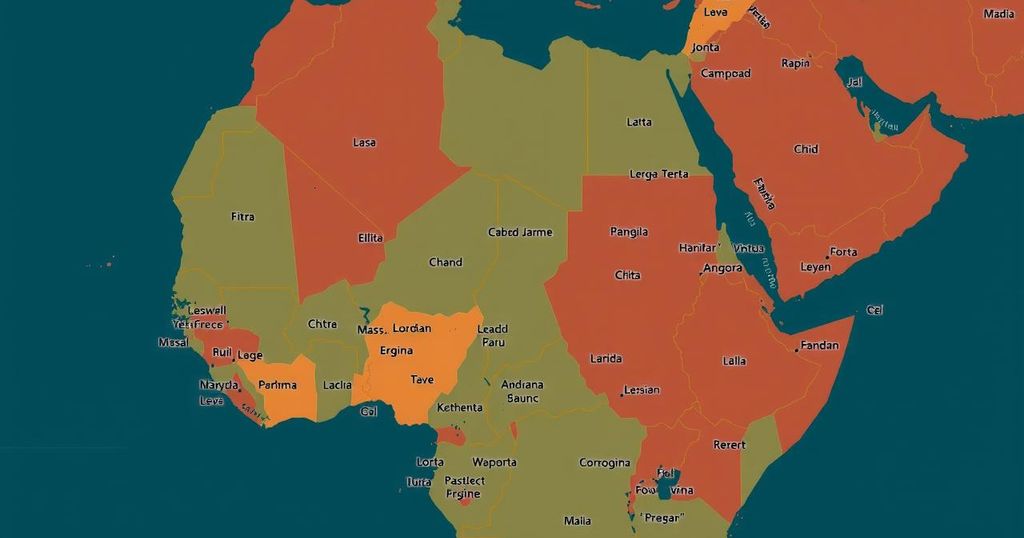The Climate, Peace and Security Fact Sheet highlights the multifaceted challenges faced by the Central African Republic, emphasizing the interplay between climate change and regional insecurity. Key issues include socio-ecological vulnerabilities, conflict among various armed factions, and the humanitarian impact of neighboring conflicts. Recommended actions for international intervention are critical to enhance resilience and security in the region.
This fact sheet centers on the pressing challenges of climate change and insecurity in the Central African Republic (CAR). The country is significantly vulnerable to climate-related impacts, exacerbated by socio-ecological issues and persistent conflict. Vulnerabilities arise from weak governmental authority, mismanagement of natural resources, and limited community resilience. Although security dynamics have shown some improvement, the situation is still precarious due to ongoing conflicts involving various factions, including the Coalition of Patriots for Change (CPC) and self-defense groups. Incidents involving government forces and armed mercenaries, such as those from the Wagner Group, continue to plague rural areas. Furthermore, the changing climate has intensified competition for resources, particularly with the influx of transhumant pastoralists during the earlier phases of the grazing season. This has led to increased tensions within local communities. Additionally, the humanitarian crisis in CAR is compounded by the fallout from the ongoing conflict in Sudan, particularly affecting the Vakaga and Haute-Kotto prefectures. In light of these challenges, the international community is urged to implement comprehensive actions geared towards enhancing resilience and security in the Central African Republic.
In the context of climate change, the Central African Republic faces unique challenges that stem from both environmental and social factors. The country is under constant threat from climate-induced disasters which affect its agricultural productivity and the well-being of its populace. Furthermore, ongoing regional conflicts, particularly those influenced by the instability in the Sahel and the Great Lakes region, have contributed to the displacement of people and the exacerbation of local resource disputes. The absence of strong state governance leads to a cycle where natural resource mismanagement and community vulnerabilities continue to hinder peace and stability. As various factions clash, the situation heightens the need for international intervention to stabilize the region and address the ramifications of climate change.
The Central African Republic is at a crucial juncture, where the intersections of climate change and security issues demand urgent action from the international community. Addressing the socio-ecological vulnerabilities and enhancing local resilience is imperative to mitigate the impacts of climate change. Moreover, fostering peace and security through conflict resolution efforts will be essential in enabling the CAR to achieve stability and improve living conditions for its citizens. International cooperation and targeted strategies are essential to navigate this complex landscape.
Original Source: reliefweb.int







